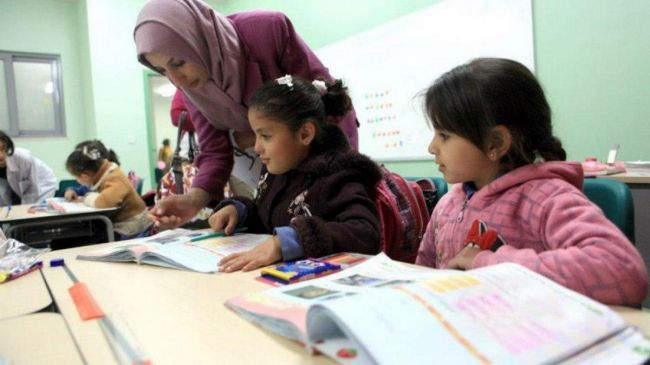Jordan: Non-payment of teacher salaries in the private sector affecting mainly women
In Jordan, all education institutions including kindergartens have been closed since 15 March.
Teachers in the private education sector have been working tirelessly to adapt to the sudden shift to online education and ensure the continuation of the teaching and learning process during this unprecedented situation. Despite teachers’ commitment to deliver online education, employers refused to pay their full salaries and protect their terms and conditions of employment during the Covid-19 crisis.
The representative of private school teachers, Ms Hadeel Kiswani, has proactively engaged in dialogue with employers and has requested the payment in full of workers’ salaries and the protection of their working conditions during and after the crisis. However, these legitimate demands were met with refusal and threatening language against Ms Kiswani.
Education International condemns the violation of the fundamental rights and freedoms of teachers, as defined by international labour standards. The impact of the ongoing situation on the well-being and working conditions of teachers, and ultimately on the quality of the education, is a serious concern.
Education International calls on the Jordanian government to guarantee the fundamental rights of teachers and education workers. It is also essential to remember that investing in education and public services in times of crisis is the best strategic response and key to a swift recovery post-crisis.
Fighting against gender discrimination
Teachers in the private sector have poor working conditions and are more vulnerable to abuses, unfair dismissals and gender discrimination at work compared to their colleagues in the public sector. The crisis is putting mounting pressure on an already struggling sector.
Education International has been closely following the fight for pay equity in Jordan’s private education sector. In 2011 the Ministry of Labour and the Jordanian National Commission for Women (JNCW) in partnership with the ILO launched the Committee for Pay Equity (NCPE) to address gender-based discrimination in the workplace.
Part of this work was the “Stand with Teachers” campaign launched in 2015 to end gender-based pay discrimination and unfair working conditions in the private education sector. The campaign is run by teachers and aims to empower female teachers so that they can collectively fight for their rights. Ms Hadeel Kiswani is the coordinator of the campaign.
As result of the campaign, a new collective contract was agreed to ensure that private school teachers are paid the minimum wage and are covered by social security benefits. However, only 30% of female teachers have signed the collective contract that guarantees a set of basic rights, for fear of dismissal.
Although Jordan ratified the ILO Convention on equal remuneration in 1966, national laws and regulations contradict international standards. National legislation does not include provisions that prohibit gender discrimination at work nor does it stipulate the right to equal pay for equal work.

[Wed, 29 Apr 2020 15:30:00 +0000] | DIGG THIS
Phone: +32-2 224 06 11 · Email: eiaco@ei-ie.org
Website Development and Design by Cyblance
